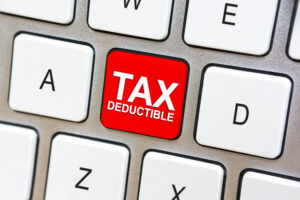Trump vs. Clinton and the Tax Plans We Could End Up With

If someone asked you to explain the differences between the two presidential candidates’ tax plans would you be able give a clear explanation? If you answered “no” most likely you aren’t alone. It’s not uncommon during a presidential election for most voters to be confused at what the candidates are actually promising or proposing. With so much back-and-forth rhetoric, it’s hard to know what each candidate really has in store.
According to Donald Trump, he wants to reduce taxes for everyone in America, especially middle-income Americans. According to numerous reports, Mr. Trump’s plan would reduce the tax system to just three tax brackets, with the top rate dropping from its current mark of 39.6 percent down to 33 percent. He also said that the wealthy would still pay their fair share, but not so much that it hinders the country’s ability to compete.
On the other hand, Hilary Clinton has yet to describe in detail what her tax plans for the middle class would be, or how they would be affected. However, she has made it clear that she wants to raise taxes on the ultra wealthy. Mrs. Clinton has stated that she wants anyone who makes more than a million dollars a year to pay a minimum of 30 percent, whether it’s from income or from capital gains. She would also like anyone who makes more than $5 million to pay an extra 4 percent.
Under Mrs. Clinton’s plan the top 1 percent would end up paying three-fourth’s of the additional taxes being collected, whereas under Mr. Trump’s plan the wealthy would be getting a tax cut of about 5.3 percent. Meantime, both candidates reportedly agree on eliminating the carried interest loophole that offers hedge fund managers a heavily discounted tax rate. Lastly, Mr. Trump wants to eliminate the estate tax completely, while Mrs. Clinton wants to raise it, as well as lower the threshold at which it starts to apply.
http://www.npr.org/2016/09/12/493573601/do-hillary-clinton-and-donald-trumps-tax-proposals-add-up
Can You Convert Taxable Savings Into Your Roth IRA?
Can You Convert Taxable Savings Into Your Roth IRA? Are you ready for retirement? It’s a common question and it applies to just about everyone at some point. However, being ready for retirement takes a great deal of planning and preparation, and not everyone is as ready as they think. One of the most important…
Don’t Miss Out on These Tax Credits
Don’t Miss Out on These Tax Credits Most people know about tax deductions. Especially taxpayers who like to itemize. However, many taxpayers are not as aware of the numerous tax credits available to them every year. And missing out on these credits can cost you a lot of money. In fact, for many families, tax…
Five Tax Credits to Take
Five Tax Credits to Take There is a common phrase that states, “Nothing in life is free.” This may be true, but there are tax credits you can take to help save money when filing your tax return. Credit #1-First Time Home Buyer Credit The first time home buyer credit has been extended to cover…




